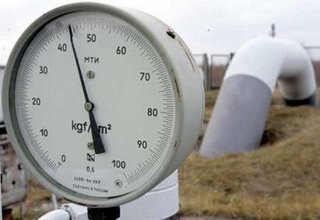Text published by Ukrainska Pravda, 5 January 2006
http://www2.pravda.com.ua/news/2006/1/5/37345.htm[Translated into English by Olga Bogatyrenko for
UKL]
Agreement Regulating Relations in the Gas Sphere
Moscow, 4 January 2006
The open joint stock company (OAO) "Gazprom" (Russian Federation), subsequently referred to as Gazprom, represented by Management Chairman A. B. Miller acting by the Statute, on the one Side,
The National joint stock company "Naftohaz of Ukraine (Ukraine), subsequently referred to as Naftogaz of Ukraine, represented by Management Chairman O. G. Ivchenko, acting by the Statute, on the other Side,
And the Company "RosUkrEnergo" (Switzerland), subsequently referred to as RosUkrEnergo, represented by Executive Directors O. A. Pal'chikov and K. A. Chuichenko, acting by the Constitutive Agreement,
Referred all together as the Parties,
Seeking to reach a mutually beneficial agreement on the regulation of relations in the gas sphere, have worked out the present Agreement, agreeing on the following:
1. The Parties agree that the price of transit of natural gas, which belongs to Gazprom (Ltd. Gazexport) and RosUkrEnergo, across the territory of Ukraine and the Russian Federation is to be set at US $1.60 per 1000 cubic meters per each 100 km of transit until 01.01.2011.
2. The Parties appoint RosUkrEnergo as the supplier of natural gas to Ukraine. Starting from 1 January 2006, Gazprom does not supply Russian natural gas to Ukraine and Naftohaz of Ukraine does not export natural gas that arrives from the Russian Federation.
3. Naftohaz of Ukraine and RosUkrEnergo are to found a joint venture on the basis of cash deposits and other assets as soon as possible and not later than 1 February 2006 in order to provide Russian natural gas for consumption at Ukraine's domestic market.
4. The Parties are to work out necessary agreements/contracts (and are to assure working out of necessary agreements/contracts) creating, starting from 1 January 2006, the commodity balance of gas of company RosUkrEnergo to cover the following volumes:
Purchases:
- 41 billion cubic meters of Turkmen gas that is to be purchased from Ltd. Gazexport and Naftogaz of Ukraine, which is at their disposal.
- Up to 7 billion cubic meters of Uzbek gas that is to be purchased from Ltd. Gazexport in order to, specifically, swap existing gas deliveries in the South Caucasus.
- Up to 8 billion cubic meters of Kazakh gas that is to be purchased from Ltd. Gazexport in order to, specifically, swap existing gas deliveries in the South Caucasus.
- Up to 17 billion cubic meters of Russian gas that is to be purchased from OAO Gazprom at the price determined by the formula based on the base price of gas (Ro= US $230 per 1000 cubic meters).
On sales:
- In 2006, 34 billion cubic meters of gas to be sold at the price of US $95 per 1000 cubic meters of gas, which is valid for the first six months of 2006 to the joint venture created in accordance with point 3 of the present Agreement (until the joint venture is created, until 1 February 2006 to be sold to Naftogaz) for the subsequent sale for consumption in Ukraine's domestic market without re-export rights.
- Starting from 2007, up to 58 billion cubic meters of gas to be sold to the joint venture created in accordance with point 3 of the present Agreement for subsequent sale for consumption in Ukraine's domestic market without re-export rights.
- 15 billion cubic meters of gas to be forwarded for export for joint programs with Gazprom.
5. The rate of pay for transit and the price of natural gas determined by the present Agreement can be changed only by mutual agreement of the Parties.
Addresses of the Parties
OAO Gazprom: 16, Nametkin Str, Moscow, Russia, 117997
NJSC Naftohaz of Ukraine: 6, Bogdan Khmelnitsky St., Kyiv, 01001
Company RosUkrEnergo A": 7 Bahnhoffstrasse, Zug, Switzerland
Signed by:
A. B. Miller on behalf of OAO Gazprom
A. G. Ivchenko on behalf of NJSC Naftohaz of Ukraine
O. A. Pal'chikov, K. A. Chuichenko on behalf of Company RosUkrEnergo AG
 Вінчую Вам нині усі добрі люди
Вінчую Вам нині усі добрі люди










